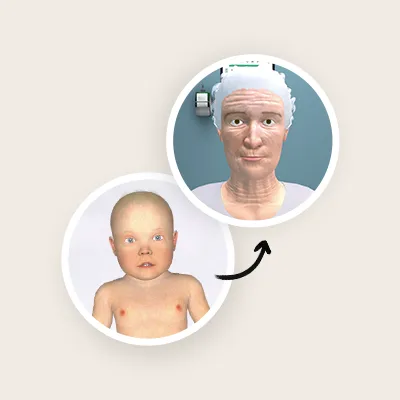Initially, Leila thought of pursuing a career in Business or Law but Nursing ended up having her attention. Since the age of 15 years old, Leila volunteered at the local fireman corporation and that triggered her true passion about healthcare.
After 4 years in Escola Superior de Saúde da Cruz Vermelha Portuguesa (ESSCV), Leila experienced the clinical context in the Emergency Department, her favourite one. However, after only two years in the field she was invited to become an assistant teacher. In 2012, Leila gave her full-time dedication to the school and has become the Nursing Degree Coordinator since 2016.
Simulation without damage for the patient
Problem-Base Learning – a methodology which presents students with a case-problem, asking them to define the diagnosis, interventions and care plan, was ESSCV’s point of departure. “From there to simulation was a step”, mentioned the Nursing Degree Coordinator.
Beginning as an assistant professor, Leila has dedicated time studying pedagogical alternatives that were gathered in the simulation field. After solving just one Body Interact clinical scenario, the nursing educator has realised that the school needed to “innovate and invest in tools that allow them to increase the fidelity of the scenarios used in clinical classes”.
“After a few minutes we’re not in a room with a table.
We’re trying to save a life or identifying the patient situation
and solving the clinical situation.”
Allowing students to develop the critical thinking of the whole intervention, as they would do in a real clinical context, is one of the benefits Leila Sales highlights about learning and practising with simulation. Also, “making mistakes become real moments of learning as professor and students can discuss, reflect and analyse what went well or not”.
As a serious game, Body Interact provides a high contribution to students’ knowledge retention. After all, at the same time students are solving a problem, “they are making real decisions, real planning and developing real interventions”, explained Leila Sales. “They are involved and they have seen the impact of that”.


Implementing Body Interact since the first day of the course
From pre-graduation learners to those who are already putting their skills into practice, or doing life-long learning courses, the nursing educator believes that Virtual Patient Simulator can be implemented transversally in their daily routines. In the earliest stages, for example, it allows students to develop physical examinations good practices and to mature dialogues’ flow with the patient.
In Leila Sales’ opinion “no tool can be compared with Body Interact”. It allows the practice of the reasoning behind the procedure by:
- Evaluating the results of the decisions taken;
- Immediately letting the students understand if the treatment plan was adequate; and
- Using well-established guidelines, protocols and scientific evidence to build the clinical scenarios.
Either from the selection of an already made scenario or by creating a specific one, the important part is to do it according to the learning objectives of the class or simulation.
Feedback or Debriefing? It depends on the level of the student
At the end of each scenario it is important to have either a feedback or debriefing session with students. “It’s the real time for learning”, explained the nursing educator.
Here are Leila Sales’ suggestions:
Feedback
The facilitator provides his/her opinion on:
- How the exercise was conducted;
- What went well and not so well;
- What points need improvement.
Providing feedback for those who are in the beginning of the course is important. Many times, students don’t have the knowledge of what is right or wrong, yet.
Debriefing
- Each team does a self-analysis on what went well, not so well and what needs to be improved in a future simulation.
- Behind these actions, students also discuss:
- How they felt in the scenario;
- How the team work was; and
- How their interactions and decisions have contributed to the scenario development and closure
- The facilitator contributes by giving his/her opinion on the same topic
Also, for students, Leila provides three special pieces of advice:
Knowledge: Always look for updated scientific evidence;
Clinical reasoning: Always have your own reasoning based on knowledge and scientific guidelines. Be a critical thinker in each situation
Prepare yourself: Improve your teamwork skills. Communicate better and train as much as possible by using simulation
“Because in real life, when things happen, decisions are taken among the team”
“Healthcare students are trained within their field of competency. However, they are not trained from the very beginning to communicate and to develop teamwork the same way they are once they enter the job market”.
Role playing has been a technique used by the nursing educator to transmit to her students the importance of team work and to get them to see the similarity of the actual clinical contact.








